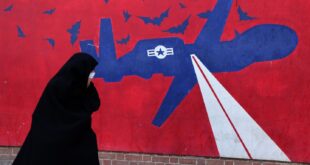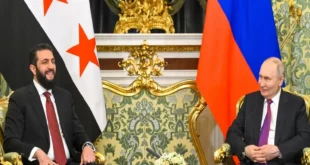KUWAIT CITY (AFP) — Kuwaiti authorities have decided to step up measures to monitor fund-raising by Islamic charities during the Holy Month of Ramadan, to prevent funds from being illegally diverted to some groups.
Like other Gulf countries, Kuwait has taken a number of regulatory measures aimed at controlling charities in the aftermath of the September 11, 2001 attacks.
Some of these charities were at one stage accused of funding “terrorist activitiesâ€, although they categorically denied these charges.
As in other oil-rich Gulf states, charitable donations in Kuwait rise sharply during Ramadan, which started Saturday, since Islam encourages offering more during the holy month.
Muslims are supposed to pay zakat, Islam’s form of taxation for the needy, amounting to 2.5 per cent of a person’s income. They also make donations to a special fasting charity at the end of Ramadan.
Kuwaiti charities are known for their generous contributions in funding many projects in the emirate and in Muslim countries in general.
It is estimated that tens of millions of dollars are raised during Ramadan in this tiny Gulf state, one of the world’s main oil producers with a daily output of 2.5 million barrels.
The ministry of social affairs and labour, which supervises all charities run by Islamic organisations, has formed special teams to monitor fund-raising during Ramadan, supervisor of charities Musaed Wagyan said. “The teams will make unannounced visits to charity organisations to ensure they abide by rules and regulations,” Wagyan said following a meeting by the department officials.
Donations in cash and in kind were banned by the Gulf state two years ago to prevent the funds from falling into the hands of “suspicious elements,” a term used to identify illegal fund-raisers.
All charitable donations were required to be made through banks.
Donours offer alms by signing forms stamped by the ministry and the amount is then deducted from their bank accounts in favour of the charities.
But the ministry earlier this week allowed charities to collect cash donations at their offices during the month of Ramadan following repeated requests by charity officials.
The decision was taken by the new Social Affairs Minister Sheikh Sabah Khaled Sabah who was appointed in July.
Donors must be provided with officially-stamped coupons supplied by the ministry, Wagayan said.
Islamist MP Duaij Shimmari, a former charity organisation official, called on the ministry in a statement last week to allow charities to collect cash donations at their offices and branches throughout the year and at shopping malls during Ramadan.
Shimmari complained that the restrictions imposed on the charities by the ministry had limited their fund-raising capabilities.
But Nasser Ammar, head of the Charity Societies Department at the ministry of social affairs, claimed that regulations imposed by his department had in fact helped charities, whose earnings have increased in the past few years.
The number of officially authorised charities has doubled to 10 in one year and they also have dozens of branches in various areas of the emirate, Ammar said.
Among the restrictions taken by the authorities, hundreds of kiosks that used to receive cash donations in favour of the charities were removed last year.
Charities can also no longer transfer funds abroad without securing prior approval from the social affairs and foreign ministries, as well as from the emirate’s central bank, which was assigned the task of monitoring all monies transferred overseas by Islamic charities in the hope of knowing the funds’ final destination.
Kuwaiti charities have also agreed to open their books to government auditing.
 Eurasia Press & News
Eurasia Press & News


